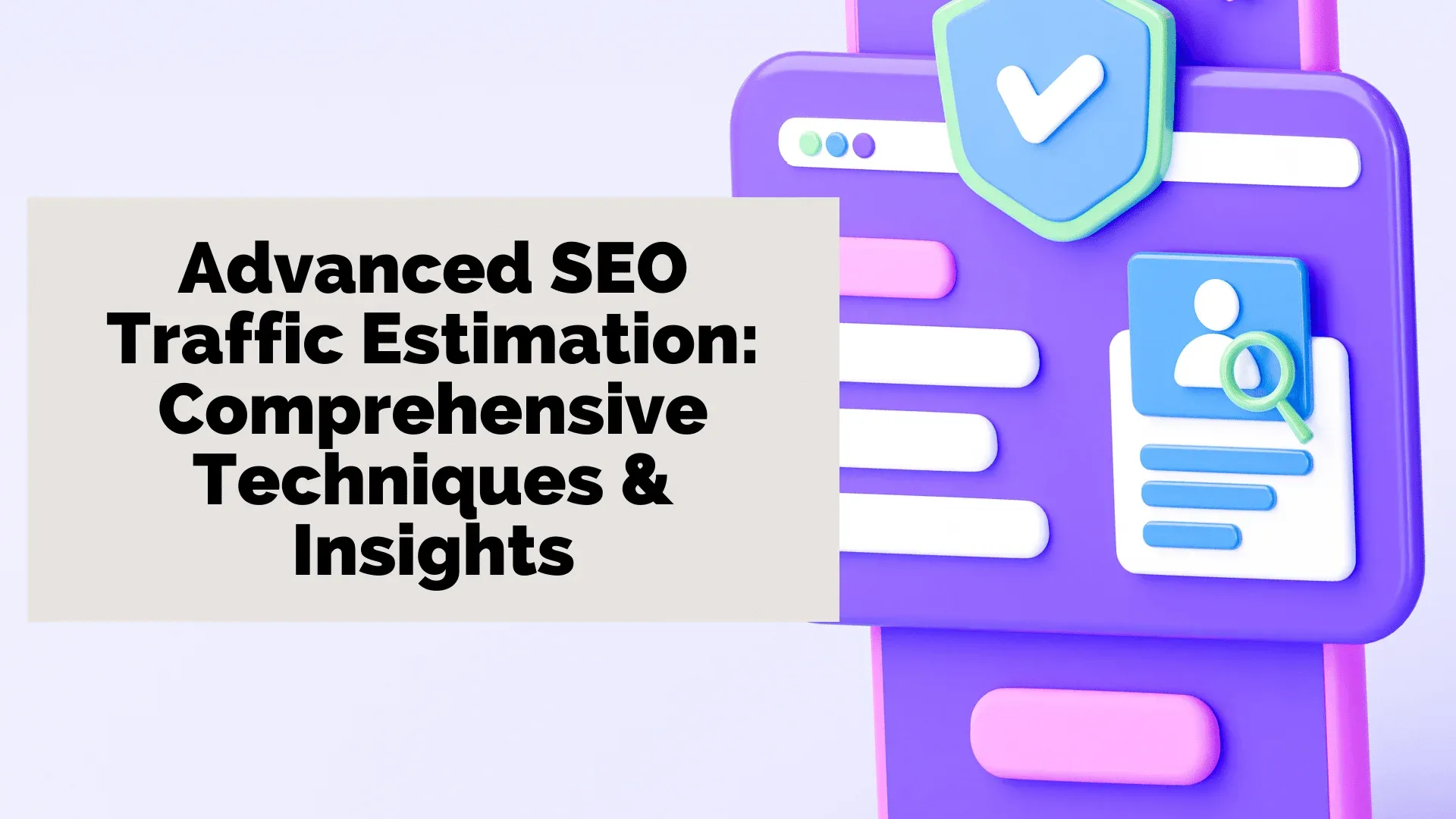When it comes to SEO, everyone’s looking for a way to measure how well a website is doing. That’s where the Authority Score comes in – it’s like a scorecard for your website’s strength on the internet.
But here’s the catch: there are ways people try to trick the system to make their websites look better than they really are. So, the big question is: can the Authority Score stand strong against these tricks? In this blog, we’ll take a closer look at the Authority Score and see if it’s tough enough to handle these challenges.
Unveiling the New Authority Score: A Metric Designed to Resist Manipulation
Search engine optimization (SEO) is a constantly evolving field, with search engines like Google constantly updating their algorithms to provide users with the most relevant and high-quality search results.
One of the key factors that search engines consider when ranking websites is their authority. Authority score, also known as domain authority or domain rating, is a metric used to measure the credibility and trustworthiness of a website. In this blog post, we will delve into the intricacies of authority score, its recent evolution, and its utility in modern SEO.
The Evolution of Authority Score
Authority score has undergone significant changes over the years. Initially, it was primarily based on the number of backlinks a website had. The more backlinks a website had, the higher its authority score. However, this led to manipulation and spamming of backlinks, with websites resorting to unethical practices to increase their authority score.
To combat this manipulation, search engines like Google began incorporating additional factors into their authority score algorithms. These factors aimed to assess the quality and relevance of the backlinks, as well as the overall trustworthiness of the website. The goal was to create a metric that was resistant to manipulation and accurately reflected the authority of a website.
Key Components of the Updated Metric
The updated authority score metric takes into account several key components to assess the authority of a website. These components include:
Analyzing Link Power
While the number of backlinks is still a factor in determining authority score, it is no longer the sole determinant. The quality and relevance of the backlinks now play a crucial role. Search engines analyze the authority and trustworthiness of the websites that are linking to a particular website. If a website has backlinks from reputable and authoritative sources, its authority score will be higher.
The Role of Organic Traffic
Another important component of authority score is the amount of organic traffic a website receives. Organic traffic refers to the visitors that come to a website through search engine results. If a website consistently receives a high volume of organic traffic, it indicates that the website is relevant and valuable to users, thus increasing its authority score.
Incorporating Spam Factors
To further combat manipulation and spamming, authority score algorithms now incorporate spam factors. These factors analyze the presence of spammy backlinks, low-quality content, and other indicators of unethical practices. Websites with a high number of spam factors will have a lower authority score, as search engines aim to prioritize websites that provide genuine value to users.
The Intricacies of Authority Score Calculation
Calculating authority score is a complex process that takes into account various parameters. The impact of different parameters on the score can vary, and the recent changes in authority score algorithms reflect the rationale behind these variations.
Impact of Different Parameters on the Score
The weightage given to different parameters in authority score calculation can vary based on their importance in determining the credibility and trustworthiness of a website. While backlinks and organic traffic are crucial factors, other parameters like social media presence, user engagement metrics, and content quality also play a role in determining authority score.
For example, a website with a high number of quality backlinks and a significant amount of organic traffic will have a higher authority score. However, if the website lacks user engagement, has low-quality content, or has a weak social media presence, its authority score may be negatively affected.
Rationale Behind the Recent Changes
The recent changes in authority score algorithms reflect the evolving nature of SEO and the need for more accurate and reliable metrics. By incorporating additional parameters and considering the quality and relevance of backlinks, search engines aim to provide users with the most trustworthy and relevant search results.
These changes also aim to discourage unethical practices such as link manipulation and spamming. Websites that engage in such practices may see a significant drop in their authority score, resulting in lower rankings in search engine results.
Utility of Authority Score in Modern SEO
Authority score is a valuable metric for digital marketers and SEO professionals. It provides insights into the credibility and trustworthiness of a website, helping them make informed decisions regarding link building, content creation, and overall SEO strategy.
How Authority Score Aids Digital Marketers
Authority score helps digital marketers identify websites that are authoritative and trustworthy in their respective niches. By analyzing the authority scores of potential link partners, marketers can ensure that they are building high-quality and relevant backlinks. This, in turn, can improve their own website’s authority and visibility in search engine results.
Furthermore, authority score can be used as a benchmark to measure the success of SEO efforts. By tracking the changes in authority score over time, marketers can assess the impact of their strategies and make necessary adjustments to improve their website’s authority.
Comparing Semrush’s Authority Score with Other Domain Rating Metrics
Semrush’s authority score is one of the popular domain rating metrics used by SEO professionals. It provides a comprehensive assessment of a website’s authority based on various parameters. However, it is important to note that different SEO tools may use different algorithms and parameters to calculate authority score.
While Semrush’s authority score is widely respected and used, it is recommended to compare it with other domain rating metrics to get a holistic view of a website’s authority. This can help digital marketers make more informed decisions and avoid relying solely on one metric.
Domain Authority Metrics: A Closer Look
Domain authority metrics, such as authority score, are widely used in SEO to assess the credibility and trustworthiness of a website. However, it is important to understand the limitations and potential pitfalls of solely relying on these metrics.
The Pitfalls of Solely Relying on DA Metrics
While domain authority metrics provide valuable insights, they should not be the sole basis for evaluating a website’s authority. These metrics are calculated using algorithms that may not capture the full picture of a website’s credibility and relevance.
For example, a website may have a high authority score but lack user engagement or have low-quality content. Relying solely on the authority score may lead to partnering with websites that do not provide genuine value to users.
Manipulation Vulnerabilities in DA Calculation
Domain authority metrics, including authority score, are not immune to manipulation. Unethical practices such as link manipulation and spamming can artificially inflate a website’s authority score, leading to misleading rankings in search engine results.
Search engines are constantly working to combat manipulation and spamming, but it is important for digital marketers to be aware of these vulnerabilities and take necessary precautions to ensure the integrity of their SEO efforts.
Detecting and Countering Link Manipulation and Spam
Link manipulation and spamming can have a detrimental impact on authority score and overall SEO efforts. It is crucial for digital marketers to be able to identify and mitigate the impact of these unethical practices.
Methodologies for Identifying Spam in Link Profiles
There are several methodologies and tools available to identify spam in link profiles. These include analyzing the quality and relevance of backlinks, checking for patterns of unnatural linking, and using specialized tools that detect spam signals.
By regularly auditing and monitoring link profiles, digital marketers can identify and remove spammy links, thus improving the overall quality and credibility of their website.
Strategies to Mitigate the Impact of Link Decay and Spam on Authority Score
To mitigate the impact of link decay and spam on authority score, digital marketers can implement various strategies:
- Regularly monitor and analyze backlinks to identify and remove spammy links.
- Focus on building high-quality and relevant backlinks from authoritative sources.
- Create valuable and engaging content that naturally attracts organic backlinks.
- Utilize link disavow tools to disassociate from low-quality and spammy backlinks.
By implementing these strategies, digital marketers can protect their website’s authority score and maintain a strong and credible online presence.
The Dilemma of Domain Authority Manipulation
Domain authority manipulation is a common practice used by some websites to artificially increase their authority score and improve their rankings in search engine results. However, this practice comes with significant risks and consequences.
Common Techniques Used to Manipulate DA
There are several techniques used to manipulate domain authority, including:
- Purchasing backlinks from low-quality and spammy websites.
- Participating in link schemes and networks.
- Creating private blog networks (PBNs) to generate artificial backlinks.
- Using automated tools to generate large volumes of low-quality backlinks.
These techniques aim to deceive search engines into believing that a website is more authoritative than it actually is, leading to higher rankings in search engine results.
Risks and Consequences of DA Manipulation
While domain authority manipulation may provide short-term benefits, it comes with significant risks and consequences:
- Penalties from search engines: Search engines like Google have strict guidelines against manipulation and spamming. Websites caught engaging in such practices may face penalties, including lower rankings or even removal from search engine results.
- Loss of credibility and trust: Manipulating domain authority undermines the credibility and trustworthiness of a website. Users are increasingly aware of unethical practices and are more likely to distrust websites that resort to such tactics.
- Negative impact on SEO efforts: Manipulating domain authority may provide temporary gains, but it can have a long-term negative impact on overall SEO efforts. Genuine and sustainable SEO strategies focus on providing value to users and building organic authority.
Ensuring the Integrity of Authority Metrics
As digital marketers, it is crucial to ensure the integrity of authority metrics and maintain accurate and reliable domain scores. This requires following best practices and considering additional factors beyond authority score.
Best Practices for Maintaining Accurate and Reliable Domain Authority Scores
To maintain accurate and reliable domain authority scores, digital marketers should:
- Focus on building high-quality and relevant backlinks from authoritative sources.
- Create valuable and engaging content that attracts organic backlinks.
- Regularly monitor and analyze backlinks to identify and remove spammy links.
- Stay updated with the latest SEO trends and algorithm changes.
By following these best practices, digital marketers can ensure that their website’s authority score is a true reflection of their credibility and trustworthiness.
The Role of Relevance and Engagement in True Authority Assessment
While authority score is an important metric, it should not be viewed in isolation. True authority assessment requires considering additional factors such as relevance and user engagement.
A website may have a high authority score, but if it lacks relevance to a particular topic or fails to engage users, its authority may be questionable. Digital marketers should strive to create content that is not only authoritative but also relevant and engaging to their target audience.
The Future of Authority Score and Domain Metrics
The field of SEO is constantly evolving, and so are the metrics used to assess authority and credibility. As search engines become more sophisticated, we can expect further enhancements to authority score algorithms.
Emerging Trends in SEO and Authority Evaluation
Emerging trends in SEO indicate a shift towards user-centric metrics and a focus on providing the most relevant and valuable content to users. This may lead to changes in the way authority score is calculated, with greater emphasis on user engagement and content quality.
Prospects for Further Enhancements to Authority Score Algorithms
Search engines like Google are constantly refining their algorithms to provide users with the best search experience. This includes enhancing the accuracy and reliability of authority score algorithms.
We can expect further enhancements to authority score algorithms to better identify and penalize manipulation and spamming, as well as to provide users with more accurate and trustworthy search results.
Conclusion: Navigating the Complexities of Authority Scores in SEO
Authority scores, such as Semrush’s authority score, play a crucial role in SEO by assessing the credibility and trustworthiness of websites. However, it is important to understand the intricacies of authority score calculation and the limitations of relying solely on these metrics.
By following best practices, staying updated with the latest SEO trends, and considering additional factors such as relevance and engagement, digital marketers can navigate the complexities of authority scores and ensure the integrity of their SEO efforts.
As the field of SEO continues to evolve, it is essential to adapt and embrace changes in authority score algorithms, while always prioritizing the creation of valuable and engaging content that genuinely serves the needs of users.




